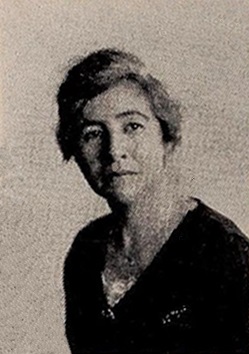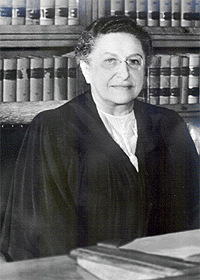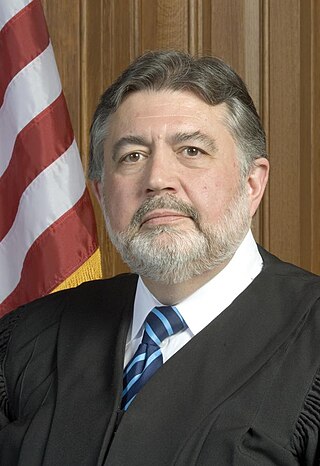Related Research Articles

Juvenile delinquency, also known as juvenile offending, is the act of participating in unlawful behavior as a minor or individual younger than the statutory age of majority. The term delinquent usually refers to juvenile delinquency, and is also generalised to refer to a young person who behaves an unacceptable way.

Daniel F. Conley is an American attorney and politician who served as the district attorney for Suffolk County, Massachusetts from 2002 to 2018. Appointed to the office in February 2002, Conley was later elected on November 5, 2002, and again in 2006, 2010, and 2014. He retired in 2018 to enter private practice.

The American juvenile justice system is the primary system used to handle minors who are convicted of criminal offenses. The system is composed of a federal and many separate state, territorial, and local jurisdictions, with states and the federal government sharing sovereign police power under the common authority of the United States Constitution. The juvenile justice system intervenes in delinquent behavior through police, court, and correctional involvement, with the goal of rehabilitation. Youth and their guardians can face a variety of consequences including probation, community service, youth court, youth incarceration and alternative schooling. The juvenile justice system, similar to the adult system, operates from a belief that intervening early in delinquent behavior will deter adolescents from engaging in criminal behavior as adults.

Andrew Fois is an attorney who serves as the chair of the Administrative Conference of the United States since 2022. He served as the deputy attorney general for public safety in the Office of the Attorney General in Washington, D.C. from April 9, 2012, to March 2015. He was awarded the Edmund Randolph Award, the Justice Department's highest honor for distinguished service.

Miriam Van Waters was an American prison reformer of the early to mid-20th century whose methods owed much to her upbringing as an Episcopalian involved in the Social Gospel movement. During her career as a penologist, which spanned most of the years from 1914 through 1957, she served as superintendent of three prisons: Frazier Detention Home for boys and girls in Portland, Oregon; Los Angeles County Juvenile Hall for girls, and the Massachusetts Correctional Institution – Framingham, then called the Massachusetts Reformatory for Women. While in California, Van Waters established an experimental reformatory school, El Retiro, for girls age 14 to 19. In each case, Van Waters developed programs that favored education, work, recreation, and a sense of community over unalloyed incarceration and punishment.

Law enforcement in Cuba is the responsibility of the National Revolutionary Police Force under the administration of the Cuban Ministry of the Interior. Article 65 of the Cuban Constitution states that "defense of the socialist motherland is every Cuban's greatest honor and highest duty". Conscription into either the armed forces or the national police force is compulsory for those over the age of 16. Nevertheless, conscripts have no choice to which service they are assigned.
The International Network to Promote the Rule of Law (INPROL) is a global, online community of practice, comprising 3,000+ rule of law practitioners from 120 countries and 300 organizations. INPROL works to assist specialists in the rule of law to stabilize war-torn societies.
Rodney Emrys Morgan is Professor Emeritus, University of Bristol and Visiting Professor at the University of Sussex. He is the former chair of the Youth Justice Board for England and Wales (2004-7) and prior to that was HM Chief Inspector of Probation for England and Wales (2001-4).
Bridgewater State Hospital, located in southeastern Massachusetts, is a state facility housing the criminally insane and those whose sanity is being evaluated for the criminal justice system. It was established in 1855 as an almshouse. It was then used as a workhouse for inmates with short sentences who worked the surrounding farmland. It was later rebuilt in the 1880s and again in 1974. As of January 6, 2020 there were 217 inmates in general population beds. The facility was the subject of the 1967 documentary Titicut Follies. Bridgewater State Hospital falls under the jurisdiction of the Massachusetts Department of Correction but its day to day operations is managed by Wellpath, a contracted vendor.

Mark Lawrence Wolf is a Senior Judge for the United States District Court for the District of Massachusetts and founder and chair of Integrity Initiatives International.

The United States incarcerates more of its youth than any other country in the world, although reports claim China has around 600,000 juveniles imprisoned which would be more than the US, through the juvenile courts and the adult criminal justice system, which reflects the larger trends in incarceration practices in the United States. In 2010, approximately 70,800 juveniles were incarcerated in youth detention facilities alone. As of 2006, approximately 500,000 youth were brought to detention centers in a given year. This data does not reflect juveniles tried as adults. As of 2013, around 40% were incarcerated in privatized, for-profit facilities.

William Richard Keating is an American lawyer and politician serving as the U.S. representative for Massachusetts's 9th congressional district since 2013. A member of the Democratic Party, he first entered Congress in 2011, representing Massachusetts's 10th congressional district until redistricting. Keating's district includes Cape Cod and most of the South Coast. He raised his profile advocating for criminal justice issues in both houses of the Massachusetts General Court from 1977 to 1999 before becoming district attorney of Norfolk County, where he served three terms before being elected to Congress.
Roderick L. Ireland is a former Chief Justice of the Supreme Judicial Court of Massachusetts, and the first African American to serve that position. He was nominated for Chief Justice by Governor Deval Patrick on November 4, 2010, and sworn in on December 20. He retired from service on the court on July 25, 2014.

The Boston Municipal Court (BMC), officially the Boston Municipal Court Department of the Trial Court, is a department of the Trial Court of the Commonwealth of Massachusetts, United States. The court hears criminal, civil, mental health, restraining orders, and other types of cases. The court also has an appellate division which reviews questions of law that arise from civil matters filed in the eight divisions of the department.
Eleanor Touroff Glueck was an American social worker and criminologist. She and her husband Sheldon Glueck collaborated extensively on research related to juvenile delinquency and developed the "social prediction tables" model for ascertaining the likelihood of delinquent behavior in youth. They were the first criminologists to perform studies of chronic juvenile offenders and among the first to examine the effects of psychopathy among the more serious delinquents.

Jennie Loitman Barron was an American suffragist, lawyer, and judge. She was the first woman to present evidence to a Grand Jury in Massachusetts and the first to prosecute major criminal cases. She was the first woman judge appointed for life to the Municipal Court in Boston (1937), and the first woman appointed to the Massachusetts Superior Court (1959).
Community Resources for Justice is a Massachusetts-based organization that has worked for over 130 years in social justice in issues like ex-offender re-entry, prison conditions, public safety, and crime prevention. CRJ was formed through the merger of several older organizations in the Boston and New England area, and while most of its work today is focused in the northeastern United States, CRJ is also engaged in work in other states around the nation.

Phillip Rapoza is a retired American judge. He was chief justice of the Massachusetts Appeals Court until his retirement in 2015. He was appointed to this court in 1998 and became the Chief Justice in 2006. He has worked internationally, serving on the Special Panels for Serious Crimes in Timor-Leste and heading a UN Criminal Justice Advisory Team in Haiti. He was also involved in programs in Cambodia relating to the Khmer Rouge Tribunal.
Paul Cashman Reardon was a justice of the Massachusetts Supreme Judicial Court from 1962 to 1972. He was appointed by Governor John Volpe.

The Commission on Crime Prevention and Criminal Justice (CCPCJ) is a functional commission of the United Nations Economic and Social Council (ECOSOC) based in Vienna. The commission serves as the primary organ that guides the activities of the United Nations in the fields of crime prevention and criminal justice.
References
- ↑ "Alper, Benedict Solomon, 1905-". Boston College Libraries.
- 1 2 3 "Benedict Solomon Alper papers". Boston College Libraries.
- 1 2 "Benedict S. Alper (1906-1994)" (PDF). American Sociological Association.
- ↑ "Love and Politics in Wartime: Letters to My Wife, 1943-45". waterstones.com.
- ↑ "Benedict S. Alper". Tulsa World.
- ↑ "Alper, Benedict Solomon, 1905-BENEDICT S. ALPER". Orlando Sentinel.
- ↑ "Judgement No. 8" (PDF). un.org.